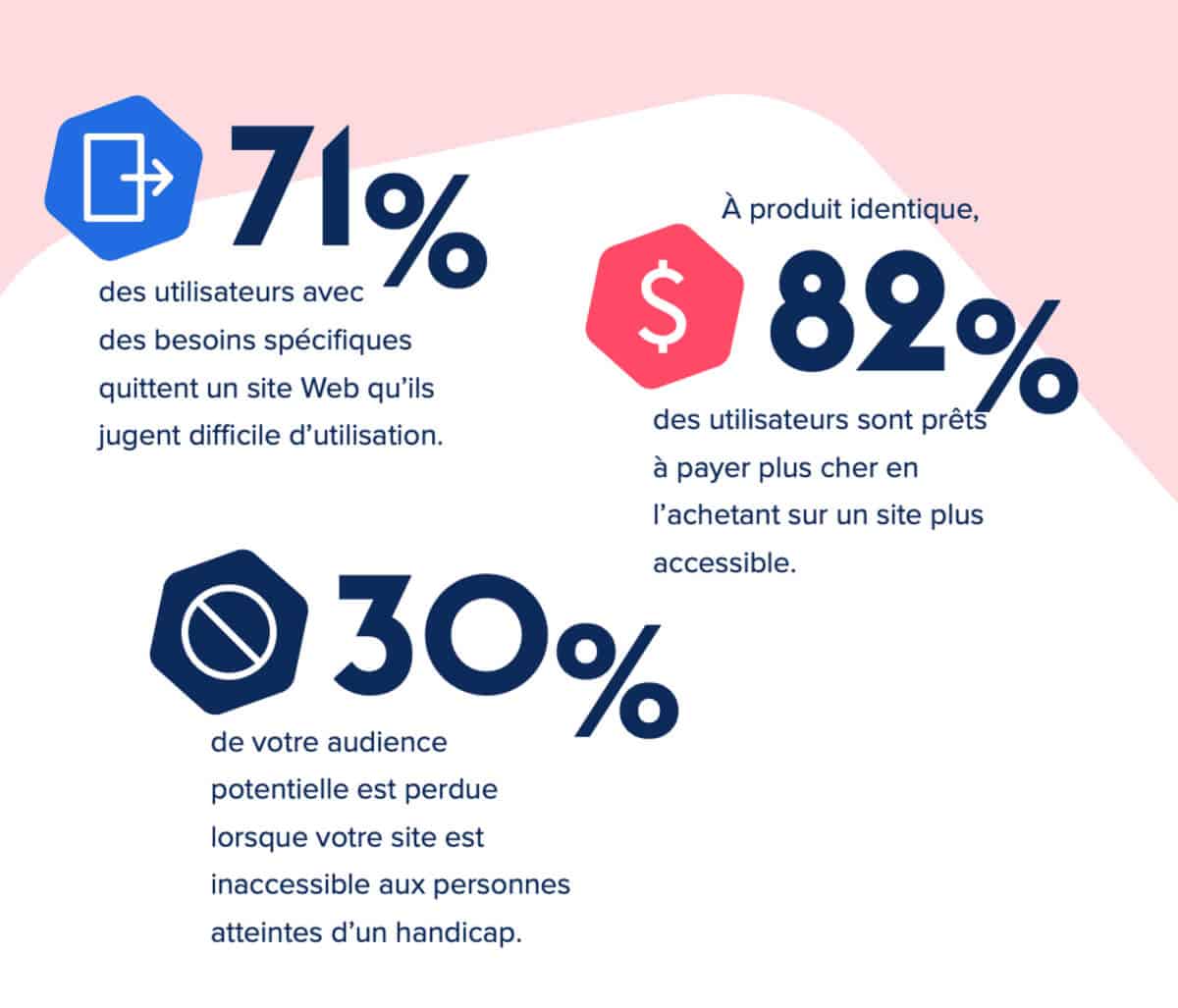Digital Accessibility: An Imperative for Modern Websites
In today's digital age, web accessibility has become an increasingly crucial topic. With the exponential growth of online users, it is essential that websites are accessible to everyone, regardless of their disability or specific needs. In this article, we'll explore the importance of digital accessibility, why sites need to comply with the standards, and the penalties for failing to meet these standards.

The importance of Digital Accessibility
Accessibility standards aim to ensure that people with disabilities can access and use websites effectively and independently. These disabilities may include visual, hearing, motor or cognitive problems. According to statistics, around 71% of users have specific needs and leave sites that are not accessible. This highlights the scale of the problem and the direct impact on website traffic and conversion.
Increased digital accessibility not only benefits users with disabilities, but all visitors. Studies show that nearly 82% of users are willing to pay more by purchasing on an accessible site. This trend highlights the growing emphasis on user experience and ethics in online businesses. An accessible site means an improved user experience, which results in increased loyalty and higher conversion rates
Additionally, neglecting digital accessibility can have legal and financial consequences for your business. Many regulations and laws now require websites to meet certain accessibility standards. In Europe, for example, the European directive on the accessibility of websites and mobile applications of public sector bodies imposes strict obligations regarding accessibility. Companies that fail to meet these standards can be subject to significant fines and costly litigation.
Non-compliant accessible website
Financial penalties are not the only concern, however. It is essential to recognize that digital accessibility goes beyond simple compliance with regulations. It is a question of inclusion, equal opportunities and respect for the fundamental rights of individuals with disabilities. As a responsible business, it is your moral duty to ensure that your website is accessible to everyone, without discrimination.
Finally, it is important to emphasize that digital accessibility is not limited to the moral and legal aspect. It is also an essential factor for search engine optimization. Google and other search engines are increasingly placing more importance on accessibility and user experience when evaluating website rankings. An accessible site is more likely to rank higher in search results, which results in increased visibility and additional organic traffic.
In conclusion, standards are an essential aspect of designing and maintaining a modern website. Not only does it ensure an optimal user experience for all visitors, but it can also have a significant impact on the reputation and profitability of your online business. By respecting accessibility standards, you show your commitment to inclusion, equal opportunities and respect for fundamental rights. Ultimately, it's a win-win decision for your business and society as a whole.
Are you ready to do a good deed?

